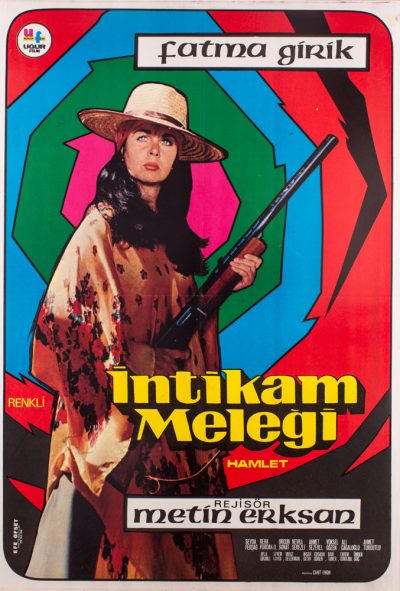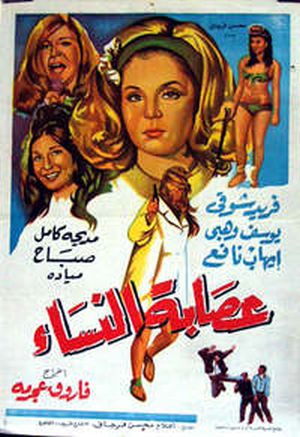★½
“Puts the turkey in Turkish cinema”
 The palpable sense of disappointment I felt when the end credits rolled, was all the more striking, given the decent way this opened. Ayse (Koç) is enjoying a shower after some afternoon delight with her lover, when there’s a thunderous knocking on the door. It’s her thoroughly disgruntled ex-husband. In the resulting fracas, the boyfriend is shot dead, and Ayse has to leap out of a window, and go on the run. Friends and family disown her, as the ancient concept of the honour killing still holds sway in contemporary Turkey. She can’t even go to the authorities, since the ex-husband is a policeman.
The palpable sense of disappointment I felt when the end credits rolled, was all the more striking, given the decent way this opened. Ayse (Koç) is enjoying a shower after some afternoon delight with her lover, when there’s a thunderous knocking on the door. It’s her thoroughly disgruntled ex-husband. In the resulting fracas, the boyfriend is shot dead, and Ayse has to leap out of a window, and go on the run. Friends and family disown her, as the ancient concept of the honour killing still holds sway in contemporary Turkey. She can’t even go to the authorities, since the ex-husband is a policeman.
Ayse attempts to head to the big city of Istanbul, more secular and offering a chance to hide out. This plan is derailed when a routine traffic stop leads to her capture. She manages to steal a police car, thanks to the cops underestimating her – you’ll find that is a bit of a theme. However, it crashes in fog and she’s forced on the run again, this time into the wilderness of the forest. She is pursued there by her former husband and various relatives, including a teenage cousin. They feel, to varying degrees that her actions have brought shame upon their family, and that she must pay for that, with her blood. Ayse, has other plans, especially after she wrests a weapon from one of the hunters.
It’s the kind of thing we’ve seen quite often before: a woman being chased through the wilderness, before turning the tables on them. When done properly, it can be highly effective. Examples of the proper execution – pun intended – would include Revenge or Arisaka. This, on the other hand, manages to get just about everything wrong. Part of it may be down to an overseas audience not being aware of the honour concepts, something the makers here don’t bother to explain. That’s forgivable. After all, it wasn’t made for us. But there are any number of other flaws, such as the ease with which she can best everyone in hand-to-hand combat. Or the lengthy, almost entirely pointless scene where Ayse tries to bribe a bus-driver to take her to Istanbul.
These pale entirely beside the ending, which is solely responsible for losing the film an entire star. For, in general, it looks decent, with some impressive cinematography, such as the drone shot that follows Ayse as she’s fleeing the apartment, and pans up to reveal the city. Despite its flaws, we were probably looking at ★★½. And then, we weren’t. I do not know what the director was trying to say with the ending. If I had to guess, something like “I have no idea how to wrap things up, and frankly, am getting bored with the entire endeavour, so I’m just going to roll the credits.” Almost makes me want to recommend watching this, purely for how bad the finish is. There’s certainly not much else to justify the experience.
Dir: Emre Akay
Star: Billur Melis Koç, Ahmet Rifat Sungar, Yagiz Can Konyali, Adam Bay





 I really must get round to reviewing Wentworth. The Australian women-in-prison drama certainly deserves coverage here, and has provided some of the best television we’ve enjoyed in the 2010’s. I keep intending to do so, but suspect that will now likely have to wait until after the show comes to a conclusion, following its ninth and final season in 2021. In the meantime, however, I do get to review the Turkish remake of the show. If you’ve seen Wentworth, this version is perhaps as unnecessary as any Hollywood remake of a familiar foreign film. Yet there are enough differences – both in story and culture – that I didn’t mind too much.
I really must get round to reviewing Wentworth. The Australian women-in-prison drama certainly deserves coverage here, and has provided some of the best television we’ve enjoyed in the 2010’s. I keep intending to do so, but suspect that will now likely have to wait until after the show comes to a conclusion, following its ninth and final season in 2021. In the meantime, however, I do get to review the Turkish remake of the show. If you’ve seen Wentworth, this version is perhaps as unnecessary as any Hollywood remake of a familiar foreign film. Yet there are enough differences – both in story and culture – that I didn’t mind too much. Okay, the above is shamelessly lifted from The Last Action Hero, in which there’s a spoof trailer for Arnold Schwarzenegger as Hamlet. But it applies just as much to this, which is remarkably progressive considering its origins; 1977 Turkey was not exactly in the forefront of women’s liberation. Yet here we are, with a modernized and severely truncated version of Shakespeare’s story. This runs 86 minutes, compared to 242 minutes for, say, Kenneth Branagh’s Hamlet. But it hits the main spots, even if only in passing: for instance, Hamlet’s soliloquy shows up, though “Alas, poor Yorick” gets short shrift.
Okay, the above is shamelessly lifted from The Last Action Hero, in which there’s a spoof trailer for Arnold Schwarzenegger as Hamlet. But it applies just as much to this, which is remarkably progressive considering its origins; 1977 Turkey was not exactly in the forefront of women’s liberation. Yet here we are, with a modernized and severely truncated version of Shakespeare’s story. This runs 86 minutes, compared to 242 minutes for, say, Kenneth Branagh’s Hamlet. But it hits the main spots, even if only in passing: for instance, Hamlet’s soliloquy shows up, though “Alas, poor Yorick” gets short shrift. 

 This movie acquired some notoriety last year when a clip of a villain’s death went viral as “Worst death scene ever”, even though it had been edited and had extra audio added for “humourous” effect. Certainly, there’s plenty to mock in this 1974 Turkish revenge flick, which plays like someone heard second-hand descriptions of Thriller: A Cruel Picture and decided the world needed a PG remake. However, while aspects of the execution are without a question shoddy and laughable, it has an interesting story, briskly told, and with a good central character.
This movie acquired some notoriety last year when a clip of a villain’s death went viral as “Worst death scene ever”, even though it had been edited and had extra audio added for “humourous” effect. Certainly, there’s plenty to mock in this 1974 Turkish revenge flick, which plays like someone heard second-hand descriptions of Thriller: A Cruel Picture and decided the world needed a PG remake. However, while aspects of the execution are without a question shoddy and laughable, it has an interesting story, briskly told, and with a good central character.